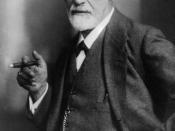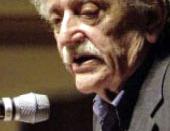The Ultimate "Catch-22" As I grade a batch of sophomore essays discussing the common echoes of an assortment of WWI poems and Erich Maria Remarque's novel, All Quiet on the Western Front, I am abruptly confronted with the military conflict in Kosovo. On March 23, 1999, peace talks having failed, NATO authorized air strikes against the forces of Yugoslav President Slobodan Milosevic. Yugoslavia promptly declared a state of emergency "" its first since World War II "" and the world was at war again.
It seemed almost like a glorified computer game to me at first "" high tech beyond belief with terms such as "smart bomb," and "surgical strike," and "satellite imagery" littering the news, but I'm beginning to get anxious as I hear about hundreds of more war planes en route and find the phrase "American ground troops" assaulting my ears with greater frequency.
As the sophomores well know, war is hell, especially to those people who have experienced its utter terror first hand.
Joseph Heller's masterful WWII novel, Catch-22, supplies for me the functional phrase by which I view the "Kosovo Crisis." As explained in the novel of the same name, "Catch-22" "specified that a concern for one's own safety in the face of dangers that were real and immediate was the process of a rational mind. Orr (a bomber pilot) was crazy and could be grounded. All he had to do was ask; and as soon as he did, he would no longer be crazy and would have to fly more missions. Orr would be crazy to fly more missions and sane if he didn't, but if he was sane he had to fly them. If he flew them he was crazy and didn't have to; but if he didn't want to he was...


